Wine Tasting
Wine Tasting
What is the tasting process?
The tasting process in wine tasting entails several key steps that assist consider and appreciate the complexities of wine. Here’s a breakdown of each stage:
1. Observation
Begin by analyzing the wine’s look. This includes:
 Color: Observe the hue, which might provide perception into the age and type of the wine.Clarity: Look for any cloudiness or sediment.Viscosity: Swirl the wine and observe the legs that form on the glass; thicker legs might indicate higher alcohol content or sweetness.
Color: Observe the hue, which might provide perception into the age and type of the wine.Clarity: Look for any cloudiness or sediment.Viscosity: Swirl the wine and observe the legs that form on the glass; thicker legs might indicate higher alcohol content or sweetness.2. Swirling
Gently swirl the wine within the glass to aerate it, which boosts its aromas. This action encourages volatile compounds to flee, enriching your sniffing experience.
3. Smelling
Bring the glass to your nose and take a deep breath. Identify totally different aromas, which might vary from fruity, floral, spicy, to earthy. Think about:
Intensity: How robust are the aromas?Complexity: Are there a number of layers of scents?4. Tasting
Take a small sip of the wine and let it coat your palate. Focus on:
Flavor: What flavors do you detect? Are they similar to the aromas?Body: Is the wine mild, medium, or full-bodied?Balance: Consider the connection between acidity, sweetness, tannins (in reds), and alcohol.Finish: Pay consideration to the aftertaste; does it linger? What flavors remain?5. Reflecting
Take a moment to appreciate the overall expertise. Consider how the wine makes you're feeling and whether you want to enjoy it once more. Document your impressions if you’re tasting multiple wines!
Following these steps can improve your wine-tasting expertise, permitting you to appreciate the intricacies of various varieties and kinds.
What is wine tasting session?
A wine tasting session is an organized occasion the place people can sample and consider numerous wines. It is a chance to discover totally different wine varieties, perceive their distinct flavors, and be taught in regards to the wine-making course of.
Key Components of a Wine Tasting Session
Selection of Wines: A variety of wines are chosen for the tasting, usually specializing in a specific region, grape selection, or type.Tasting Techniques: Participants are guided on the method to properly style wine, which incorporates wanting, smelling, and sipping to analyze the wine’s traits.Food Pairings: Some periods could embrace meals pairings, enhancing the tasting expertise by demonstrating how sure meals complement specific wines.Expert Guidance: Typically, a sommelier or wine expert leads the session, providing insights and answering questions about every wine.Common Objectives of Wine Tasting
To develop an appreciation for different wine styles and flavors.To educate individuals about wine areas, grape varieties, and manufacturing methods.To establish private preferences for wines.To foster social interaction amongst participants by way of a shared expertise.Overall, a wine tasting session is both an academic and 부달최신주소 (Continued) enjoyable event, good for wine lovers and novices alike.
Is wine tasting formal?
Wine tasting can differ in formality relying on the setting and occasion. In some circumstances, it may be fairly formal, taking place in upscale environments the place particular protocols are adopted. This could include guided tastings led by sommeliers, with a give attention to the wine's traits and pairing ideas.
On the opposite hand, wine tasting can additionally be a casual experience, corresponding to at festivals, informal gatherings, or house tastings with pals. In these conditions, the emphasis is commonly more on enjoyment and exploration quite than strict rules.
Formal Wine Tasting
In a proper wine tasting, individuals might gown up, adhere to a schedule, and take part in structured evaluations of different wines. The use of particular terminology and the presence of a facilitator is frequent. Tasting notes may be taken, and meals pairings are sometimes included to boost the expertise.
Casual Wine Tasting
Conversely, casual wine tasting allows for more flexibility. Participants might merely pour and sip with none predefined structure or guidelines. Discussions could additionally be informal, focusing on private preferences and experiences quite than technical particulars.
Ultimately, whether a wine tasting is formal or informal can rely upon the context and the preferences of those involved.

___name___
___time______content___